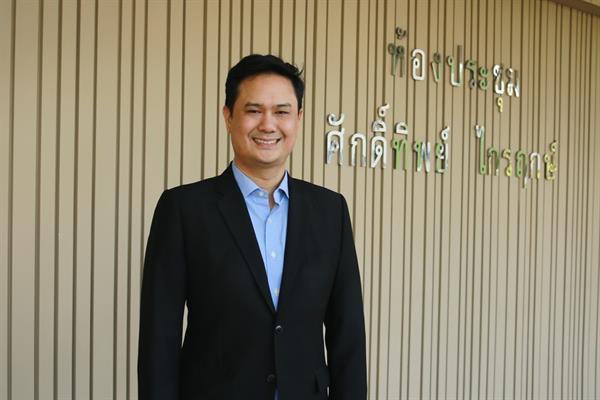Dr. Pisit Leeahtam, Chairman – Future Innovation Thailand Institute (FIT)
The Future Innovative Thailand Institute or FTI presented a public policy requesting the government to concretely improve the quality of vocational education, adjust the curriculum, invest in cutting-edge machineries and technologies that the government needs to support an additional budget of 56,800 million baht per annum, promote internships and preparedness in schools and enterprises, this will help students to earn monthly income amounting 8,580 baht during 6-month internship period per academic year and also sustainably solve the inequality problem with free education policy up until high vocational education in both technical, commercial and other fields to increase opportunities for students in continuing their studying, its target is set at 80% of Thai students to graduate of vocational education or upper secondary education year 6.
.
Dr. Pisit Leeahtam, Chairman of Future Innovation Thailand Institute (FIT) said that prior to the period of economic crisis in 1997, Thailand’s economy had rapidly grown with an annual growth rate at about 6-7%, export growth rate at more than 20% and Thailand was ranked as one of Top 5 countries in the Asia Pacific region where foreign investors chose to invest. However, presently, Thailand has an economic growth rate at 3-4% and cannot return to grow as fast as it was before while the export industry has become unreliable due to uncertain global market factors and structural factors of Thailand’s economy, apparently, the competitiveness of the country has decreased. In the past, Thailand penetrated to the export industry in 1980s by using a comparative advantage from a large number of unskillful and cheap labor forces (Labor-intensive). In the contrary, at present, Thailand is not a country having cheap labor force anymore, meanwhile, the number of medium to high skilled labors in Thailand is relatively small, causing Thailand unable to upgrade its industry to Technology Intensive level or Capital Intensive level. Thailand’s national income per capita in 2017 was at 5,960 USD, or approximately 16,300 baht per month, and from the survey of working situations of Thai people, it was found that 74.84% of them are those who have income less than 15,000 baht. Therefore, Thailand needs
.
To invest in vocational education in order to increase the number of skilled labors, especially engineers and technicians, as soon as possible to upgrade its industry to higher technology level, have higher productivity or higher value added for moving Thailand from the Middle-Income Trap to be the country with high income.
.
In this policy research presentation, it attracted the attentions from academics, politicians, representatives of vocational institutes, representatives of Ministry of Education and private sector to attended and listen to policy recommendations of the Future Innovative Thailand Institute (FIT), as well, vocational students and their parents also raised questions and expressed their opinions on the future of vocational education in Thailand. In this event, Dr. Suthikorn Kingkaew, Director of Consulting Networking and Coaching Center (CONC) from Thammasat University was the moderator.
.
Dr. Tharadol Piempongsant, Director of Public Policy Department, and Miss Wipattra Totemchokchaikarn, Policy Analyst, Future Innovative Thailand Institute (FIT), presented the policy research titled ” Upgrading Labor Skills to leave the Middle-Income Trap” that Thailand has been trying to develop a vocational education system for a long time but the investment in equipment and machineries has not been seriously proceeded, resulting in insufficient knowledge and skills of vocational students to meet the needs of labor market. Additionally, the lack of support from private sector, especially from small and medium enterprises (SMEs) for the Dual Vocational Training causes vocational students not ready to work.
1. Support free education for vocational certificate, high vocational certificate in both government and private vocational institutes, in technical, commercial and other fields with the budget support from government to meet international standard.
Those who are interested in full version of research result and policy suggestions titled “Upgrading Labor Skills to leave the Middle-Income Trap” can follow at www.fit.or.th or watch recording video of research presentation at Facebook page: Future Innovative Thailand Institute.




